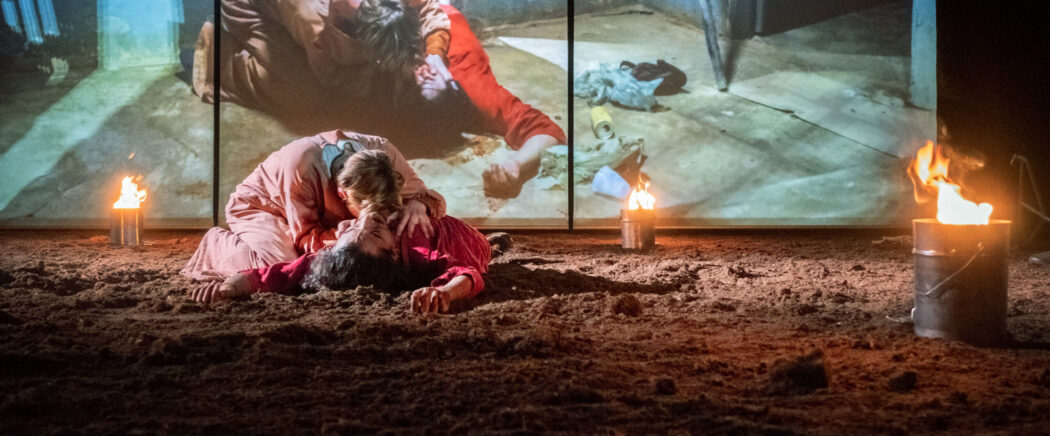The image of Indigenous peoples as environmental protectors – for the “universal good” of “all humanity” – is somewhat palatable to an assumed non-Indigenous, but environmentally-invested media public. What, however, is sometimes lost in reporting on Indigenous environmentalisms are the less palatable claims of land defense and ancestral rights. These are fundamental claims that challenge the total sovereignty of a given nation-state.
Of course, Indigenous land struggles can be both at once – both environmental protection and an expression of territorial rights. Indigenous resistance asserts Indigenous ecological knowledge and the right to determine the state of human and more-than-human relations in ancestral lands.
We see this at Chi’chil Biłdagoteel (Oak Flat, Arizona) as an anti-colonial collective called Apache Stronghold resist a joint Rio Tinto x BHP copper mining venture. We see this at the sacred mountain Mauna Kea (Hawai’i Island) as Kānaka Maoli land defenders resist the construction of the Thirty Meter Telescope. We see this at Unist’ot’en Camp (in so-called British Columbia) as the Wet’suwet’en Nation resist a series of pipelines pitched to run directly through their territory. And we see this throughout the Amazon as Indigenous peoples resist logging, drilling, intensive agriculture, hydropower, and mining (both “legal” and illegal).
The figure of an Indigenous Antigone is profound for many reasons. For one, Antigone’s defiance speaks to the “striking … women-led condition” of Indigenous environmental resistance movements, to quote Sisseton-Wahpeton Oyate scholar Kim TallBear in her writing on the Standing Rock pipeline blockade of 2016-17. For another, Antigone is a play about state violence and state disregard for inherent human rights, in life and in death. Antigone is an appeal to a legal authority beyond the state. As yearly homicide reporting from Global Witness attests, Indigenous land defenders globally are among the most vulnerable to militarized state and para-state violence in the service of corporate interests. Movements for land reform and claims to communal land rights are deeply threatening to state ideology, and the massacre at the heart of Antigone in the Amazon – of 21 members of El Movimento dos Trabalhadores Rurais Sem Terra (MST; the Landless Workers Movement), committed by military police in Eldorado dos Carajás, northern Brazil, in 1996 – represents a repression that continues.
Izzy Lockhart is Assistant Professor of English at New York University.
